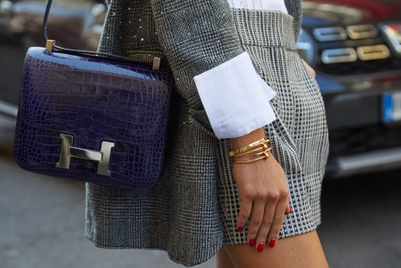
High-profile Chinese actor Li Yifeng, who is the face of Prada, Panerai, and Remy Martin, has been arrested by the Beijing police on charges of “soliciting prostitution on multiple occasions.” According to the Weibo post from the Beijing Municipal Public Security Bureau, the 35-year-old has admitted to the crime.
In the aftermath of this scandal, a series of international and domestic companies have cut ties with the personality: in total, a dozen brands ended their contract with Li yesterday, including the aforementioned Prada and Panerai, as well as local conglomerate Luk Fook jewellery.

Concerned by the growing influence of the country’s entertainment industry, Beijing is taking a tough line with stars over any alleged “misbehavior.” Li, with over 60 million followers on Weibo, is the latest in a long line of A-listers to face the fate of being canceled. Back in October 2021, renowned pianist Li Yundi was arrested for visiting sex workers and hasn’t appeared in public since.
China’s expanding scrutiny of its celebrity culture has serious implications for luxury groups’ marketing efforts in the mainland. In recent years, high-end establishments have been heavily depending on homegrown idols to promote their collections. The fan economy here is one of the most active in the world. Stans are willing to buy anything to ensure the commercial success of their favorite celeb.
Last year, haute jewelry house Chaumet announced pop icon Lay Zhang as brand ambassador. At the news, young fans rushed to post their purchase receipts in the comment section and so express their gratitude and support for the label’s choice. It should be noted that Chaumet’s items can cost from a couple of thousand to hundreds of thousands of dollars—predominantly out of teenagers’ wallets. Such is the toxic culture that’s formed in fandom circles.
Given the mounting crackdown—which sees no end—the easy play for maisons might now be over. Today, VIP-led campaigns are exposing businesses to bigger PR risks than their actual benefits. For instance, endorsements require a faster reaction time from firms to avoid boycotts from shoppers and the government. Despite the potential losses that derive from the contract breach, organizations must immediately terminate any collaborations with the “misdeed” names.
In light of this, luxury players should start diversifying their strategies and look for alternative ways to capture young consumers’ hearts and pockets.



.jpg&h=334&w=500&q=100&v=20250320&c=1)



.png&h=334&w=500&q=100&v=20250320&c=1)
.png&h=334&w=500&q=100&v=20250320&c=1)


.png&h=334&w=500&q=100&v=20250320&c=1)





.jpg&h=268&w=401&q=100&v=20250320&c=1)
.png&h=268&w=401&q=100&v=20250320&c=1)

